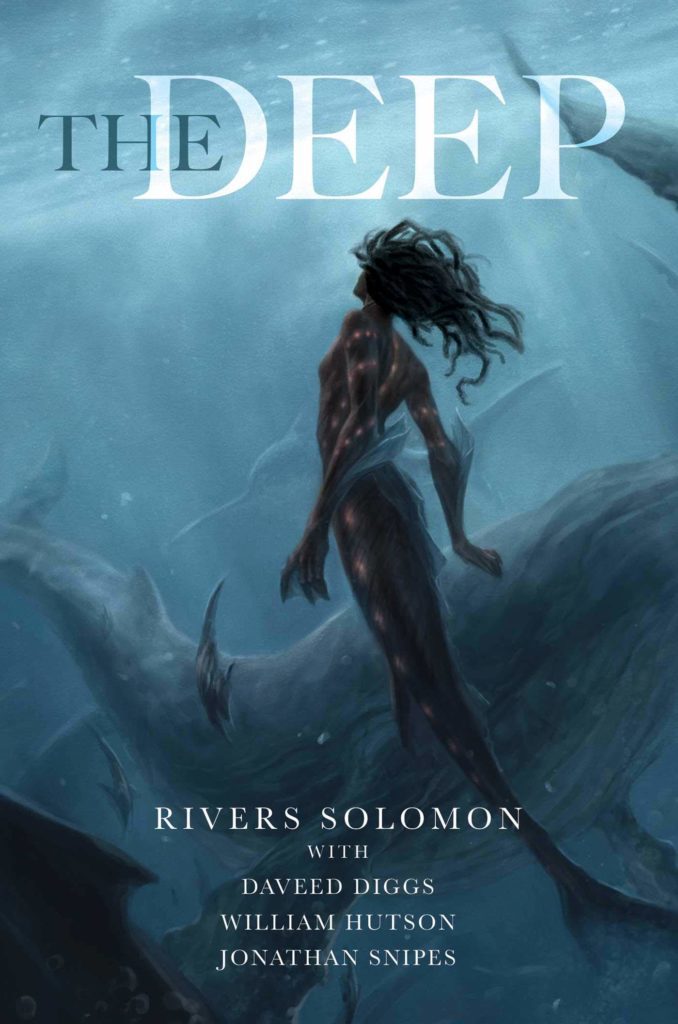Books We Love
Rivers Solomon’s The Deep demonstrates a literal transformation of human bodies as a result of a change in environment. In this novella, the descendants of kidnapped African mothers thrown from slave ships as they cross the Atlantic ocean become the wajinru, an deep-sea dwelling merpeople who live in blissful forgetfulness of their history. The wajinru’s forgetfulness is enabled by a social structure in which a Historian is tasked with the remembrance of the people’s entire history. The Historian holds all wajinru memory within their body, feeling the physical pain and emotion of those memories, until those memories are passed on to the next Historian.

The untenable nature of this system of remembrance is made explicit in the main character, Yetu (the current Historian), as she struggles to cope with the pain and horror of wajinru history. Solomon raises questions around the idea of communal versus individualistic social structures when they depict Yetu simultaneously acknowledging the value of her role as a keeper of memory — even memory that is so painful that it is literally transformative — and her real need for care and acknowledgement as an individual.
While previous wajinru Historians were able to thrive — or at least survive — under the burden of the memories, Yetu is different. She is often anxious and agitated, overwhelmed by the expectations that the other wajinru have of her. In this way, Yetu not only helps the reader to understand the wajinru as a diverse people, but her neuro-atypicality opens the door to large-scale changes in wajinru social structures. Because of Yetu’s inability and refusal to continue on as the Historians have always done, her society as a whole changes in a positive way.
The Deep is about the many ways that our environments — whether they be ecological, social, or psychological — can change us; and in depicting a variety of changes throughout the novella, Solomon acknowledges the interconnectedness of human and non-human histories and their reverberations through spaces and bodies. Fundamentally, The Deep shows us how change comes through interconnectedness, through the relationships we have with each other, and how we understand and respond to one another’s pain.

1 thought on “Review: The Deep by Rivers Solomon”